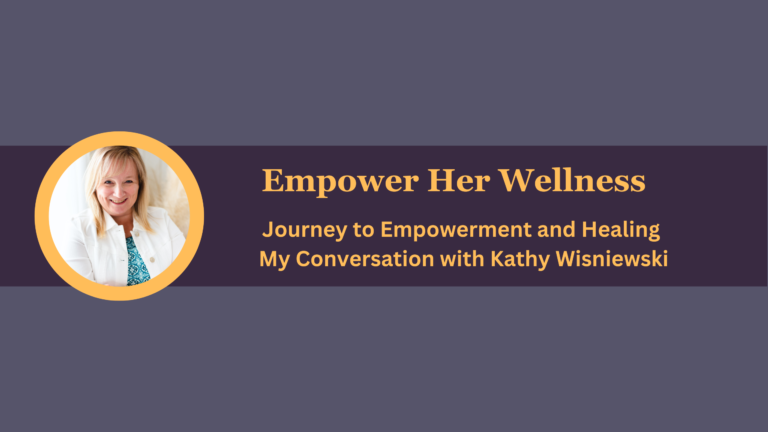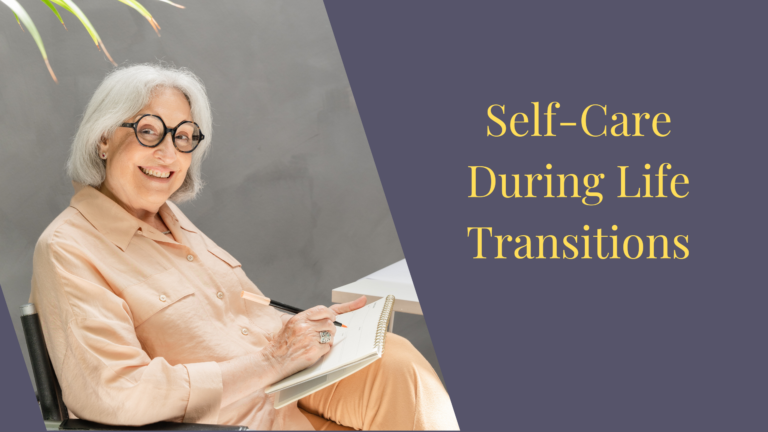Dr. Ginny Trierweiler’s journey began like many of ours. In her youth and even into her 30s, she never worried about weight. Her diet consisted of carefree meals of donuts, coffee, Mountain Dew, and chocolate bars without seeing any adverse effects. But everything changed when she entered menopause, compounded by years of fertility treatments. Suddenly, her usual habits failed her, and she experienced rapid weight gain, along with a sense of betrayal from her own body.
What followed was a decade of frustration as she struggled with the common advice to “eat less and exercise more.” No matter how much she tried, this approach only led to more weight gain and a deepening sense of helplessness. She sought answers from doctors, who repeated the same tired advice, which failed to yield any meaningful results.
It was at this point that Dr. Ginny realized she had to change her approach entirely.
A Wake-Up Call
Dr. Ginny had a pivotal moment that forever altered her path. As she began her coaching business and worked as a psychologist in nursing homes, she encountered patients desperate to regain their independence. These individuals, many in their 60s and 70s, suffered from conditions like diabetes, heart disease, stroke, cancer, and dementia—all illnesses deeply intertwined with lifestyle choices. This was a disturbing realization for Dr. Ginny. She began to fear she was on the same path, especially after being diagnosed with pre-diabetes herself.
Her health had deteriorated to the point that she could barely walk due to severe pain and inflammation. “I could barely walk for ten minutes,” she admitted. It felt like her life was coming to a halt. The distressing experience of seeing younger people in nursing homes added to her urgency to make a change. She loved her lifestyle, but she needed to overhaul her approach to eating and drinking if she wanted to avoid a similar fate.
The Battle with Food and Drink
Dr. Ginny had another challenge to face: her daily drinking habit. What started as an occasional glass of wine had escalated into a dependency. She acknowledged how difficult it was to cut back, even when she knew it was affecting her health. This struggle is one many people share but often feel too ashamed to admit. “It’s embarrassing,” she confessed, adding that the progression from a single glass to an entire bottle was all too real for her.
Determined to find a new path, Dr. Ginny dove deep into the science of nutrition. The conventional wisdom of eating less and exercising more clearly wasn’t working, and her training in evidence-based practices urged her to dig deeper. She began to realize that the solutions offered by mainstream diet culture had not worked for most people for over a century.
Discovering the Truth About Healthy Eating
Dr. Ginny set out on a mission to understand what truly constitutes healthy eating. “You keep saying you eat pretty healthy, but you don’t actually know what that means.” Trusting her scientific background, she scoured hundreds of studies to uncover real, evidence-based principles for healthy living. She sought a sustainable approach that not only helped with weight loss but also reversed symptoms of pre-diabetes, insomnia, hot flashes, and chronic inflammation.
As she started to implement these principles, Dr. Ginny noticed incredible changes. Her health improved naturally, and she found herself enjoying the new way of eating. Her mindset transformed from “poor me” to genuine excitement about her lifestyle changes.
Rethinking Diet Culture and Popular Trends
Dr. Ginny’s journey also highlighted the confusion surrounding popular diet trends. Keto, carnivore, vegetarian, vegan, South Beach—the list goes on. Each new diet claims to have the answer, but few deliver long-lasting results. Reflecting on her youthful days when she could eat anything without consequences, Dr. Ginny explained how seemingly harmless habits catch up with us, especially as we age.
She believes that our poor eating habits in youth do indeed contribute to the challenges of menopause and beyond. Those who have healthier eating habits earlier in life often experience fewer struggles with weight gain and related illnesses during menopause. “Our eating affects us at a cellular level,” she shared, pointing to research that shows processed foods damage our metabolic systems in numerous ways.
The Bigger Picture
Dr. Ginny’s insights are not just about weight loss; they emphasize the systemic impact of our eating habits. Many Americans face metabolic issues that manifest as obesity, diabetes, heart disease, and other chronic illnesses. Yet, she stresses that this decline isn’t inevitable. A century ago, these issues weren’t as widespread, suggesting that our modern, processed-food diets are a significant factor.
Her message is clear: Just because our eating habits seem “normal” doesn’t mean they are healthy. We’ve grown up in a culture of convenience, surrounded by processed foods that deteriorate our health. It’s time to recognize the long-term effects and take control of our wellness.
Why Eating Less and Exercising More Doesn’t Work
When it comes to traditional dieting advice, we’ve all been told: eat less, exercise more. But why doesn’t this method deliver long-term results? Dr. Ginny Trierweiler explains the science behind our body’s reaction to food scarcity. When we drastically cut calories or over-exercise, our body switches into survival mode. It perceives a lack of nutrition as a threat and activates protective mechanisms.
Ready to get off the health and wellness rollercoaster? Listen to my episode with Cara-Michele for tips on how to do just that!
“Our body starts storing excess fat, makes us hungrier, and slows down our metabolism,” Dr. Ginny shared. It also increases anxiety and disrupts sleep patterns. Our body’s natural defense system works against us, making weight loss impossible. This response stems from our biological drive to avoid starvation, leading to a vicious cycle of weight gain and nutritional deficiencies.
The Processed Food Problem
The root of the issue is that our diets are largely made up of processed foods. “We aren’t getting enough real, whole nutrition,” Dr. Ginny emphasized. Instead, we’re filling our bodies with heavily processed, nutrient-devoid items that trigger our biological systems to store fat. Even though processed foods are marketed as “heart-healthy” or “cholesterol-free,” these labels often mask a harsh reality.
Processed cereals or snacks may boast health benefits on the packaging, but they lack the essential nutrients our bodies need. “It totally worked on me, too,” Dr. Ginny admitted, acknowledging the deceptive influence of food industry marketing. The unfortunate truth is that food corporations heavily influence what we learn about nutrition, infiltrating medical schools, nutrition standards, and government policies.
Our Dependency on Processed Foods
Currently, 73% of the average American diet consists of processed foods. As Dr. Ginny explained, “Our bodies don’t know what to do with these foods except make us store fat.” These items are stripped of the beneficial elements found in whole foods like bell peppers, beans, and leafy greens. The result is a society struggling with metabolic disorders, weight gain, and chronic health issues, all linked to our eating habits.
Principles for Healthy, Sustainable Eating
Dr. Ginny introduced two of her four foundational principles for healthier living. These guidelines are simple yet transformative, aiming to correct decades of misinformation.
1. Eat Abundant, Nutrient-Dense Foods
The first principle is to fill our plates with highly nutritious, whole foods. “Think of fruits, vegetables, quality protein, healthy fats, and whole grains,” Dr. Ginny advised. Many people still harbor confusion about grains. The outdated food pyramid that promoted refined grains like bread and crackers set a harmful precedent. But that doesn’t mean we should eliminate grains entirely. Instead, we need whole grains that provide essential nutrients.
Dr. Ginny stressed the importance of increasing real, nutritious foods from 27% of our diet to as close to 100% as possible. “If people hear nothing else from me, let it be this: plates full of real, whole foods,” she emphasized. Only then can we truly combat our cravings and improve our overall health.
2. Reduce or Eliminate Processed Foods
The second principle may seem straightforward, but it’s one of the most challenging: eliminate processed, packaged foods that our ancestors wouldn’t recognize. While moving from 27% to even 50% real food is a start, it often doesn’t yield dramatic results. For many, it requires going closer to 100% whole foods to see a meaningful impact.
People often express concerns about the difficulty of this lifestyle. Dr. Ginny acknowledged these struggles, but she emphasized the concept of “choosing your hard.” Is it more challenging to prepare nutritious meals, or to deal with long-term health consequences?
Shifting Mindsets and Setting Boundaries
Making a shift in how we eat involves more than just knowledge; it requires a mental and emotional commitment. Dr. Ginny discussed the common social and workplace challenges people face. For example, bringing a healthy lunch only to be tempted by coworkers to go out for fast food is a familiar struggle. “You have to make choices and set boundaries for yourself,” she noted. This might mean turning down a spontaneous lunch invitation to stay committed to your meal prep.
Creating Time for Healthier Habits
A common excuse is the lack of time to eat healthily. Dr. Ginny empathized with this sentiment, but a coach once told her, “If you can’t carve out 30 minutes to eat healthy, you will face the consequences.” The reality is that we must prioritize our well-being, or we’ll suffer from the consequences of poor nutrition.
The idea that you can eat whatever you want without repercussions is a harmful myth. Dr. Ginny explained, “You can eat whatever you want, but there are always consequences for your metabolic system, liver, and weight.” Instead, she recommends trying out a new way of eating for a period to see if you love it. Often, the initial difficulty of change fades quickly.
The Addictive Nature of Unhealthy Foods
For many, certain foods and drinks are addictive, making moderation impossible. Dr. Ginny shared her struggle with trying to limit herself to one glass of wine on weekends. “I’d have one, and then I’d want more, and the craving would return the next day,” she revealed. The same went for sugar. She found it more effective to take a complete break from these addictive substances, allowing cravings to diminish naturally.
Dr. Ginny has witnessed countless success stories. People initially fear giving up their favorite indulgences but quickly find that cravings fade, and they don’t miss them as much as they anticipated. She invites people to commit to a year of eating nutritious food and eliminating processed junk. The transformation in health, energy, and self-worth can be profound.
Why We Struggle to Let Go of Comfort Foods
Many of us have a deep attachment to comfort foods like wine and cheese. Dr. Ginny explained that this comes from both a biological drive and emotional conditioning. Our primitive brain wants to maintain familiar habits because they have kept us “safe” in the past. This survival mechanism, ingrained since the time of saber-toothed tigers, resists change.
Additionally, our emotional attachments to certain foods make us feel like we “deserve” them. Reflecting on this, Dr. Ginny realized she only used the phrase “I deserve this” when referring to unhealthy things. “That hurt my heart,” she confessed. “I want to be wiser than that. I deserve better.”
For many women, especially those in their 50s and beyond, this shift in thinking is a wake-up call. They are ready to live a wiser, more fulfilling life that prioritizes health over short-term comfort.
Navigating Social Situations
Social life can be one of the hardest areas to navigate when making healthier choices. Dr. Ginny and I will dive deeper into strategies for managing social eating in the next part of our discussion. Stay tuned as we explore practical ways to maintain your commitments to yourself, even when friends are urging you to indulge.
Finding the Balance in Social Situations
One of the most common challenges for people trying to eat healthily is navigating social situations. Whether it’s a dinner with friends, a happy hour, or a potluck, the pressure to indulge in unhealthy foods and drinks can be overwhelming. Dr. Ginny acknowledges that it’s difficult, but not impossible, to maintain a healthy lifestyle without sacrificing your social life.
She explains that preparation and a supportive mindset are key. “If we really believe this matters, we can handle it better,” she shared. Dr. Ginny emphasized that having the right support system, like a coach or a community, makes it easier to stay committed. It’s about focusing on what you truly value in social experiences, like love, companionship, and connection, rather than the food or drinks.
To handle these situations, Dr. Ginny suggests planning ahead. Think about how you will stick to your healthy habits while enjoying time with your friends. For example, if you’re attending a potluck, bring a nutritious dish like a large salad to share. “I had to have conversations with myself in the car before going to events,” she admitted. It’s about setting boundaries for yourself, understanding that you can still have fun, but you can’t indulge without consequences.
Facing the Consequences of Unhealthy Choices
Dr. Ginny speaks candidly about the consequences she faced when she didn’t prioritize her health. “I could barely walk. I was pre-diabetic. I was headed for the nursing home,” she recalled. These harsh realities served as a reminder of what was at stake, which made it easier to stay committed to her new way of eating.
For many of us, though, the cultural messages around food and drink make it hard to stay motivated. Society has ingrained ideas into our minds, like “it’s wine o’clock somewhere” or “mommy needs her wine.” The alcohol industry spends billions of dollars on advertising, which reinforces the normalization of daily indulgence.
Breaking Through Mental Barriers
Even when we know something is true, it can be hard to accept. Dr. Ginny acknowledged this struggle: “My brain doesn’t want to hear that,” she said, empathizing with those who feel resistant. The cultural messaging is strong, and many of us are so deeply ingrained in these habits that change feels impossible.
This resistance is part of the reason why many people break down emotionally when faced with the reality of their health. Dr. Ginny admits she cried at the beginning of her journey, overwhelmed by the difficulty of breaking free from unhealthy habits. It’s not just about knowing the answers; it’s about making the mental and habitual shifts necessary to live differently.
Why Dieting Feels Like Suffering
One of the biggest mental hurdles people faces is the belief that giving up their favorite foods and drinks will lead to suffering. Dieting experiences in the past may have left you feeling deprived and miserable, only to fail in the long run. This history makes it hard to trust that a new approach to eating can be joyful and fulfilling.
Dr. Ginny recognizes this and emphasizes that real, sustainable change comes from a place of understanding and compassion. It’s not about following restrictive diets but about nourishing your body with foods that make you feel good and keep you healthy. The idea is to shift your perspective from what you’re giving up to what you’re gaining: energy, vitality, and freedom from health concerns.
You can find Dr. Ginny’s episode here.
Final Reflections
Dr. Ginny’s message is both challenging and inspiring. She calls for a deep reevaluation of how we view food, social culture, and our own well-being. The journey to health is not just about physical changes but also about transforming the way we think and feel about food.
If you feel overwhelmed by the idea of changing your lifestyle, remember that it’s a process. You are not alone, and it’s okay to feel conflicted. As Dr. Ginny said, it’s about finding your motivation, planning ahead, and seeking support when needed. And most importantly, it’s about understanding that choosing your health is a form of self-love that will bring long-term rewards.
If Dr. Ginny’s story has inspired you, consider implementing some of these principles into your own life. Remember, change is hard but often worth it, and your health and happiness are worth investing in.







